
Microsoft Compatibility Telemetry High Disk Uses [GUIDE]
Solution 1. Switch Feedback and Diagnostics to Basic Solution 2. Disable Microsoft Compatibility Telemetry Using Task Scheduler Solution 3. Disable Microsoft Compatibility Telemetry Using Group Policy Editor Solution 4. Disable Telemetry Using Windows Registry Editor Solution 5. Disable Connected User Experiences and Telemetry Service
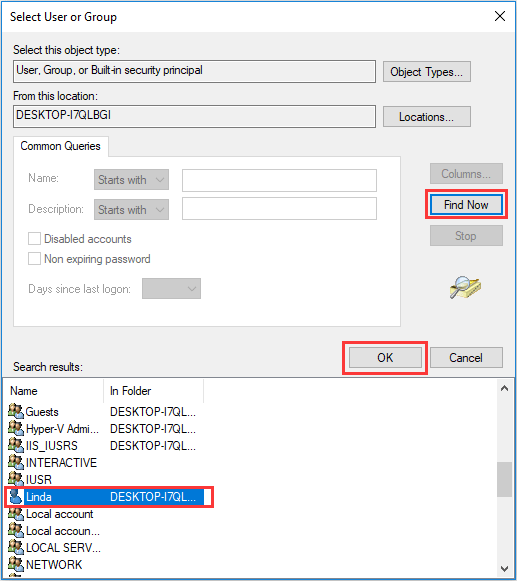
How to Fix Microsoft Compatibility Telemetry High Disk Easily MiniTool Partition Wizard
Microsoft Compatibility Telemetry (CompatTelRunner.exe) is a free service in Windows 10 that is designed to contain technical data about how the device and its related software are working and sends the data to Microsoft regularly for future system improvement and user experience enhancement.
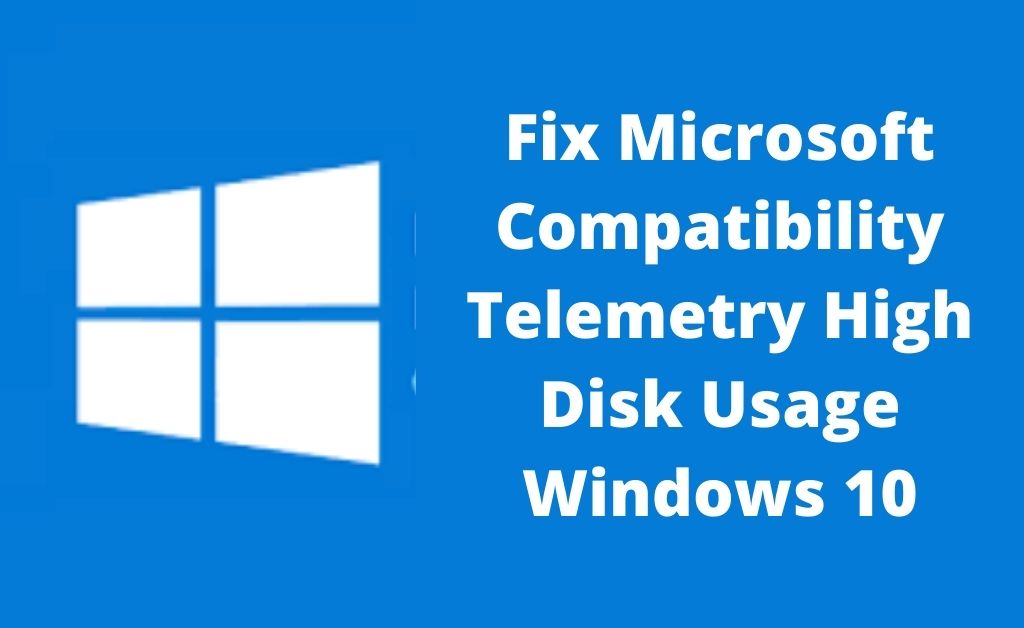
Fix Microsoft Compatibility Telemetry High Disk Usage Windows 10
The Windows Compatibility Telemetry is a service in Windows 10 which contains technical data on how the device and its related software is working. It periodically sends the data to Microsoft for future improvement of the system and to enhance the user experience.
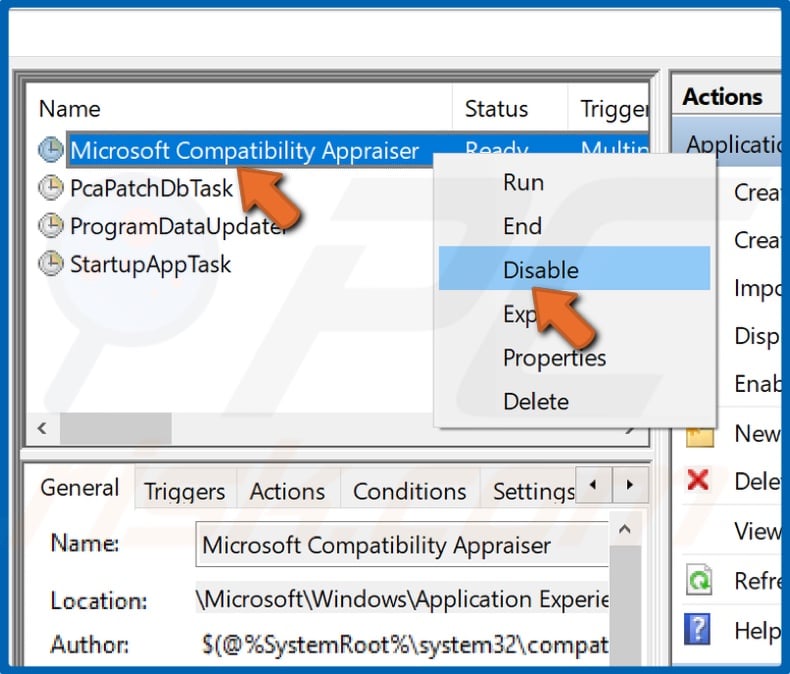
[Fixed] Microsoft Compatibility Telemetry High CPU and Disk Usage
The Microsoft Compatibility Telemetry process running in Task Manager is an essential component of the Windows operating system. It collects and sends telemetry data to Microsoft, helping them improve compatibility, performance, and user experience. By analyzing this data, Microsoft can make informed decisions about future updates and enhancements.

How to disable Microsoft Compatibility Telemetry Software Blog
1. Refresh the Connected User Experiences and Telemetry Service Refresh the Connected User Experiences and Telemetry service in the Windows Services app to rule out any temporary issues with the Windows telemetry process. Doing so may help solve the primary problem with the service and reduce the burden caused by it.
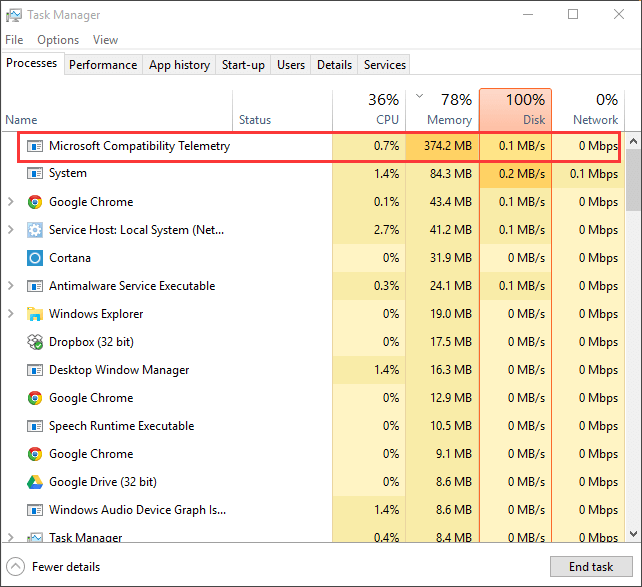
Solved Microsoft Compatibility Telemetry High Disk or High CPU Usage
Actually, Microsoft Compatibility Telemetry collects and sends some of your data to Microsoft which helps them to improve the things for you and provide you a good user experience by fixing the potential issues. What type of data does it send? Well, it does not send your personal data. It sends usage and performance data to Microsoft.
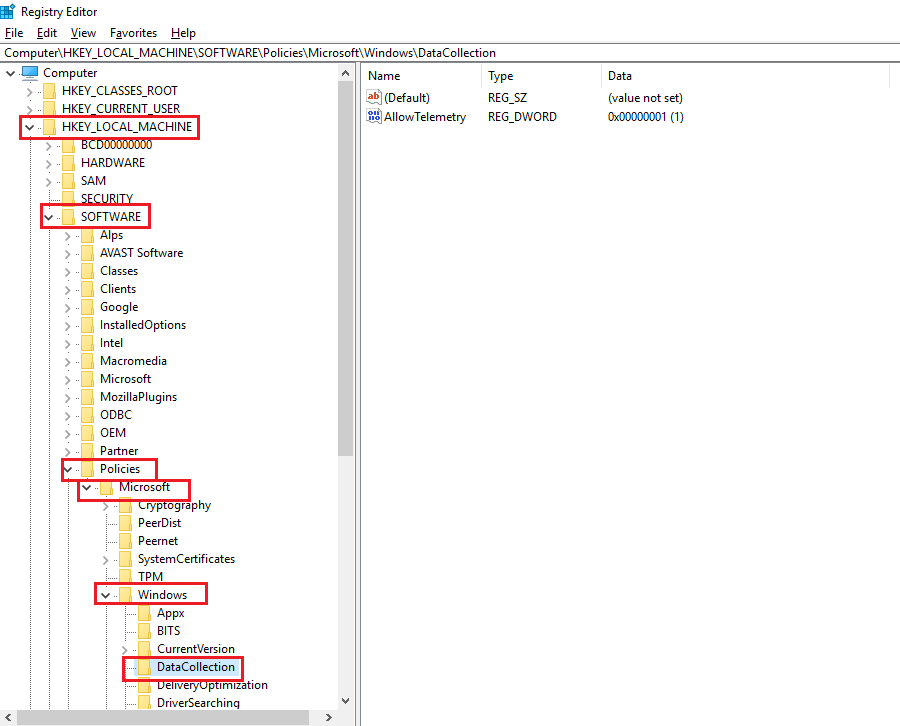
What Is Microsoft Compatibility Telemetry? Should You Disable It? LaptrinhX
Solution #1: Disable Microsoft Compatibility Telemetry. Solution #2: Set Diagnostic data to Basic. Solution #3: Check and repair bad sectors for hard drive. Solution #4: Delete CompatTelRunner.exe. Solution #5: Scan and repair corrupt system files. Solution #6: Check and repair bad sectors for hard drive.
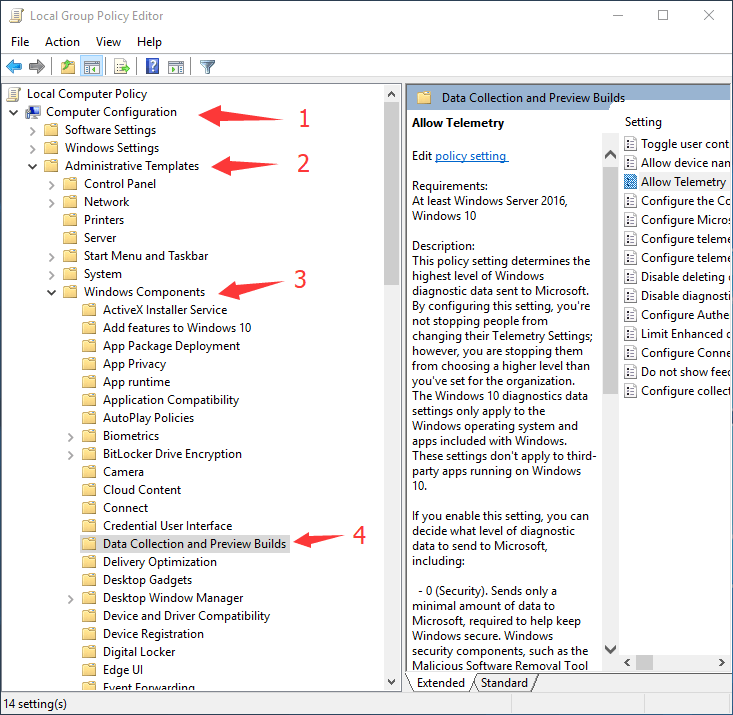
Solved Microsoft Compatibility Telemetry High Disk or High CPU Usage
The Windows Compatibility Telemetry contains technical information about how the device and its associated software work. It sends data to Microsoft on a regular basis in order to improve the system and improve the user experience.

[GUIDE] Fix Microsoft Compatibility Telemetry Causing 100 Disk Usage
4. Disable Microsoft Compatibility Telemetry from the Registry Editor. You can also disable Microsoft Compatibility Telemetry by configuring a registry entry. Follow these steps: Note: We recommend creating a registry backup before proceeding with the following steps. Click the Start Menu and type Registry Editor.
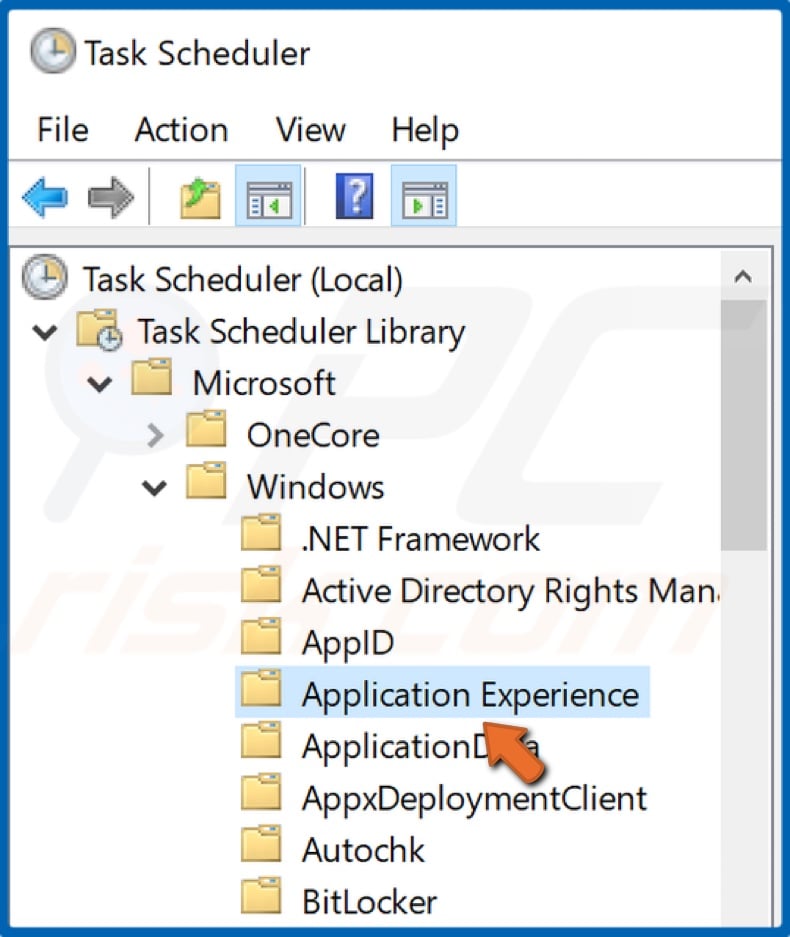
[Fixed] Microsoft Compatibility Telemetry High CPU and Disk Usage
1. Disable Microsoft Compatibility Telemetry via Task Scheduler 2. Limit the Amount of Data Microsoft Can Collect 3. Refresh the Telemetry Service 4. Replace CompatTelRunner.exe 5. Decide When Telemetry Service Runs at Full Capacity 6. Disable Microsoft Compatibility Telemetry via Group Policy Editor 1.
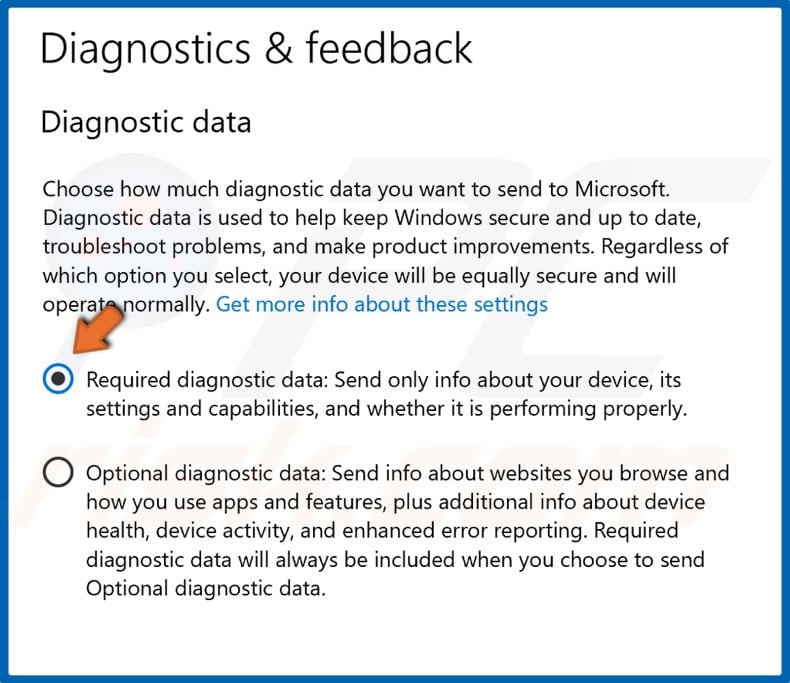
[Fixed] Microsoft Compatibility Telemetry High CPU and Disk Usage
Microsoft Compatibility Telemetry, a service meant to share the PC's performance feedback with Microsoft, is often found to be using high CPU in Windows. How do I fix Microsoft Compatibility Telemetry high CPU usage? 1. Disable from Task Scheduler Press Windows + R to open Run, type taskschd.msc, and then hit Enter.

Microsoft Compatibility Telemetry High Disk Usage on Windows 10[Solved]
Microsoft Compatibility Telemetry is a program built into Windows to collect statistics on how a your computer and its program are operating. It reports the to Microsoft who can then try to tweak their software (usually the operating system, like Windows 10 or 11) in future patches to make your computer run better.
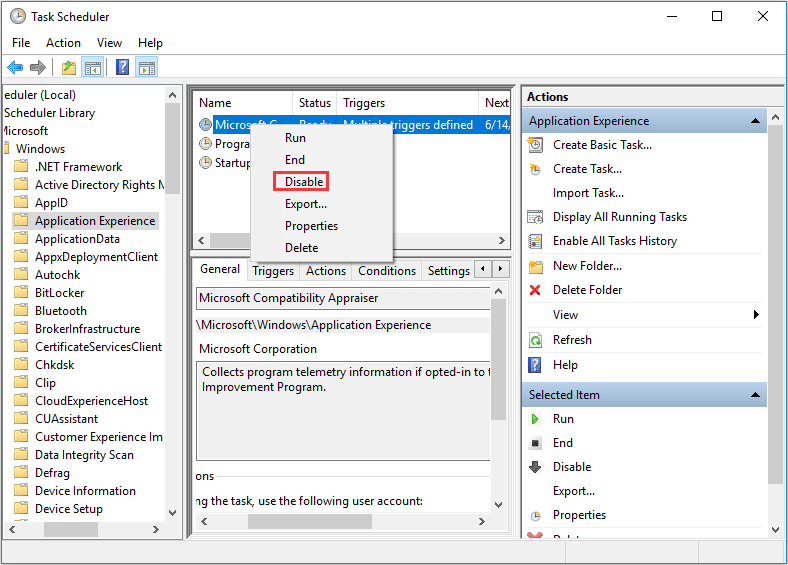
How to Fix Microsoft Compatibility Telemetry High Disk Easily MiniTool Partition Wizard
Fix 1. Disable Microsoft Compatibility Telemetry Windows 11/10 When you are suffering from Microsoft Compatibility Telemetry high disk usage or high CPU problem, try to disable CompatTelRunner.exe on Windows 10 in a few ways. 1. Disable Microsoft Compatibility Appraiser via Task Scheduler

How to Disable Microsoft Compatibility Telemetry in Windows 10?
Open Run. Type gpedit.msc and press Enter to open the Local Group Policy Editor. Go to Computer Configuration > Administrative Templates > Windows Components > Data Collection and Preview Builds. Double-click on Allow Telemetry or Allow Diagnostic Data. Check Disabled and click Apply > OK.
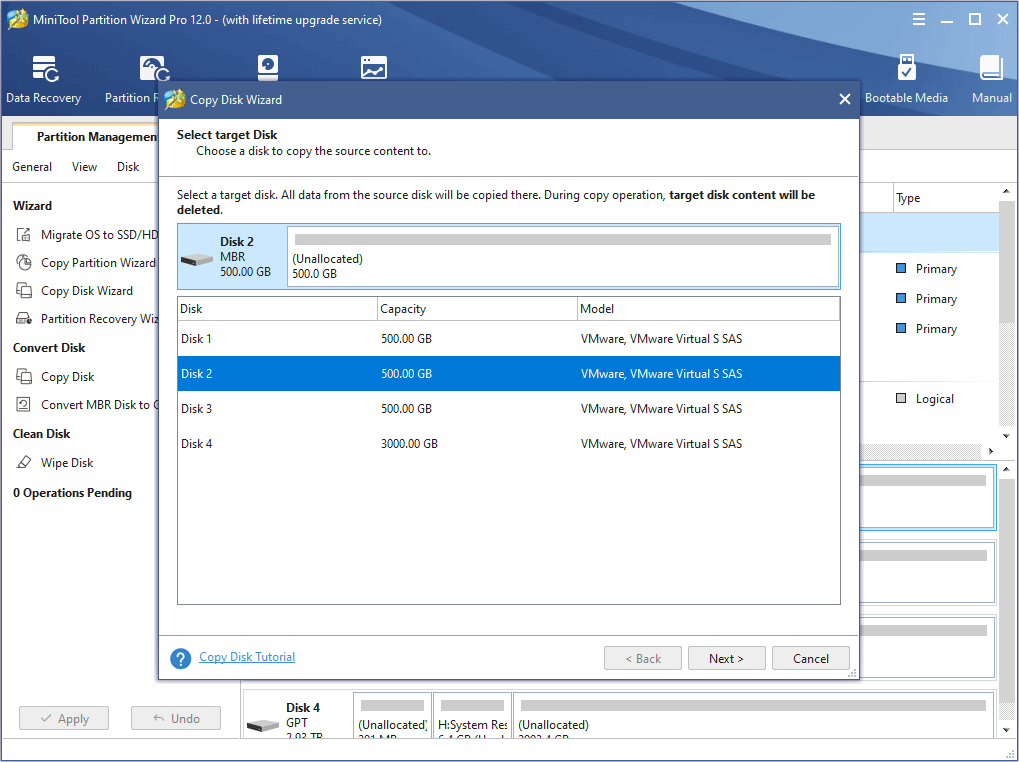
How to Fix Microsoft Compatibility Telemetry High Disk Easily MiniTool Partition Wizard
1. Introduction to Microsoft Compatibility Telemetry. Microsoft Compatibility Telemetry is a service in Windows that is frequently referred to as CompatTelRunner.exe in the task manager. Data from a user's PC is automatically gathered and sent to the Microsoft development team.
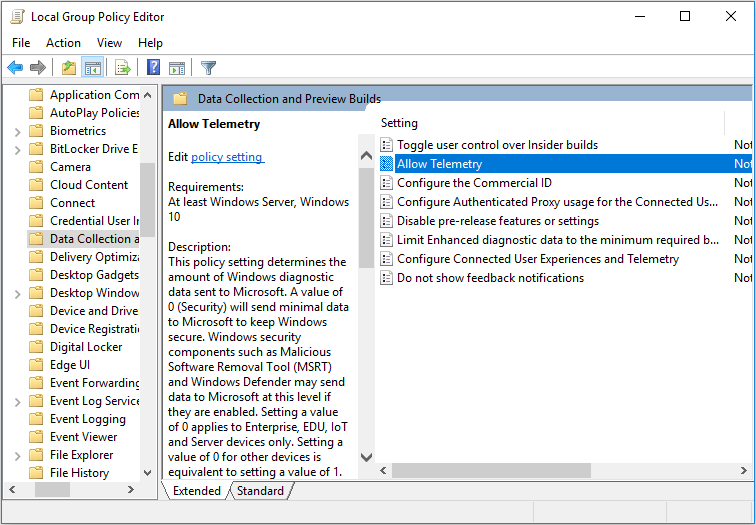
How to Fix Microsoft Compatibility Telemetry High Disk Easily MiniTool Partition Wizard
In the left pane, navigate to " Computer Configuration " > " Administrative Templates " > " Windows Components " > " Data Collection and Preview Builds .". On the right pane, locate and double-click on " Allow Diagnostic Data " (earlier known as Allow Telemetry) in the right pane. In the window that appears, select.